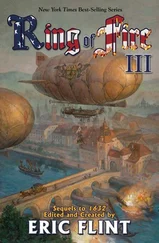Eric Chevillard - Palafox
Здесь есть возможность читать онлайн «Eric Chevillard - Palafox» весь текст электронной книги совершенно бесплатно (целиком полную версию без сокращений). В некоторых случаях можно слушать аудио, скачать через торрент в формате fb2 и присутствует краткое содержание. Год выпуска: 2004, Издательство: Archipelago Books, Жанр: Современная проза, на английском языке. Описание произведения, (предисловие) а так же отзывы посетителей доступны на портале библиотеки ЛибКат.
- Название:Palafox
- Автор:
- Издательство:Archipelago Books
- Жанр:
- Год:2004
- ISBN:нет данных
- Рейтинг книги:3 / 5. Голосов: 1
-
Избранное:Добавить в избранное
- Отзывы:
-
Ваша оценка:
- 60
- 1
- 2
- 3
- 4
- 5
Palafox: краткое содержание, описание и аннотация
Предлагаем к чтению аннотацию, описание, краткое содержание или предисловие (зависит от того, что написал сам автор книги «Palafox»). Если вы не нашли необходимую информацию о книге — напишите в комментариях, мы постараемся отыскать её.
Palafox — читать онлайн бесплатно полную книгу (весь текст) целиком
Ниже представлен текст книги, разбитый по страницам. Система сохранения места последней прочитанной страницы, позволяет с удобством читать онлайн бесплатно книгу «Palafox», без необходимости каждый раз заново искать на чём Вы остановились. Поставьте закладку, и сможете в любой момент перейти на страницу, на которой закончили чтение.
Интервал:
Закладка:
Let us be clear — the instant if not self-explanatory is at least well-chosen — that elephants’ graveyards do not exist. One sometimes finds, in essence, three or four skeletons in a clearing, or more, but here’s why: old, sick or wounded, elephants swear off roaming the earth and remain near a water source, where food abounds, it’s wise, thus our widows clattering with ivory, instinctively or without thinking, end their days along the Riviera. No serious zoologist now believes in some occult force leading them to these wild gardens. Another myth, please note, is the supposed appreciation of music by rattlesnakes. In reality, Palafox is only attracted to the movements of the flute. He follows Algernon through the fields, as if hypnotized, Maureen and Olympia helping Chancelade along, and we’re back in La Gloriette again.

We are at war, lest we forget. The battles are intensifying. The outcome of the conflict grows uncertain. Of course, our collections of Egyptian art have been enriched by ten sarcophaguses, four superb blue earthenware hippos, statuettes and canoptic jars, an obelisk, various rare papyri, above all a large number of mummies of cats and ibex, but the enemy has certainly helped itself to most of our cubist and post-impressionist paintings. And if we have been able to recoup the Renaissance masterpieces they took from us during a previous conflict — two Fra Angelicos, a fine Arcimboldi among others — it would seem that the enemy had, for his part, made off with all our Flemish masters, including those which never belonged to him. That is all the information we have available to us. Status quo, really. Hard to say who will win. But things can change quickly, one way or the other. Lieutenant Chancelade will be indisposed for a few weeks, we’ll have to manage without him.
Palafox wanders in the pit dug and paved for him in the middle of the park, appointed according to his taste. A rock symbolizes a mountain. The plantigrades need this minimum of space, without which they perish. While fighting him, Chancelade tore off his tail, but Palafox remains dangerous, and anyway it’ll grow back. Algernon filed down his claws and canines, we cut down his horns, he remains dangerous despite it all, his electrical discharges attain an intensity of 600 volts, could stop a steer, even more so a cowboy, in this instance our poor old Olympia. Doubtless it is sad to arrive here, at this end, but there is no other solution, gelding him, neutering Palafox, all his aggression comes from there, from that end. Palafox in rutting season cannot be controlled, cannot control himself, Algernon’s attempts to civilize him are for naught, he once again becomes the man-eater who Sadarnac, lying, claims to have fished out of the Pacific, but who lived in all likelihood in a Bengali forest, where he was captured before being sold to a zoo, escaped, burst in chez the Buffoons as we all recall who took him in, pampered him, very nearly domesticated him, and unthinkable that all this should be for naught — so we neuter Palafox. First thing, hobble the animal, done, then wash the belly with warm water. Sharpen a razor and make an incision a hair longer than an inch at the base of the scrotum. With two fingers, as if you were digging for a dime lost in the lining of a jacket, nudge the nut towards the tear, ibid ball two, then pull until it releases from the spermatic cord, it will release, it must release, it releases. Apply an antiseptic healing salve to the wound, repellant to flies — maggots be hanged — and leave the pit without dragging your feet. Prudently Algernon undoes Palafox’s ties.
10
They did not hesitate to ditch every one and thing to join us, their students, their families, their workbenches, as soon as they received Algernon’s alarming letter they packed their bags, professors Baruglio, Pierpont and Zeiger are La Gloriette’s invitees. You come in too, Cambrelin, since you’re here. The four zoologists lean forward. Baruglio moves aside to let Pierpont pass who moves aside to let Zeiger pass, Cambrelin didn’t have to be asked twice, behind him the three others bump into each other and curse, recall that Pierpont can’t stand Zeiger who can’t stand Baruglio, he who allied himself with the entomologist against the ornithologist, it’s all perfectly clear, it would be unfortunate that a simple question of entrance protocol condemns us to interrupt this story, whatever one might think of it, so close to the end. But Cambrelin steps back out to press on his colleagues, and it’s the same melee all over again. Just as we are on the brink of throwing this manuscript into a drawer, bitterly, to accommodate the touchiness of four professors — indeed, why introduce this one before that one? — Maureen holds us back (inspiration therefore is a pale little face with shimmering eyes), closes the drawer, then leans to open another door by the window and the pace of our story picks up, our invitees barrel into the hall where Olympia waits for them, so there you are, who gives each of them a copy of the preceding chapter. You should know, adds Algernon while they bring themselves up to date on the latest events, you should know, I, in essence, am telling them, that the castration of Palafox has done nothing to modify his anti-social behavior. Yesterday, he bit the mailman and the milkman. As a result, neither milk nor mail this morning, sad breakfast that. Later, a vendor of marble headstones who’d heard about Chancelade’s misadventures came to see what had happened, we reassured him, Chancelade will pull through, the state of my health seemed to concern him, Maureen’s lack of appetite, Olympia, her fear of water in particular, it all interested him. And then Palafox charged and began making loops around his head, cawing, the little guy didn’t take it very well, summer or winter you can count on him, day as night, one cry and he’ll be there. But not all our visitors have his patience, someone will end up trampling Palafox underfoot. We had him well in hand however, he obeyed our orders, pooping in the sawdust at last, and only in the sawdust, no longer eating his fleas, walking upright on two paws, even beginning to talk.
Algernon’s discouragement and discomfort are justifiable, the date of the exhibition approaches, but Palafox has never been less presentable. Now, he barely recognizes us. He won’t give us his paw. He doesn’t come when we whistle. He flees our company, as if he were suddenly afraid of us, takes off as if spooked, flies into the windowpane, tries to hide under the furniture, between the floorboards, comes to rest on the ceiling and stays glued there until dark. Thanks to darkness — rabble finds a friend in darkness — he steals into the cellar and dips into our stores of sugar, rice, coffee, cookies, you never know with this war, he eats his way into our hams, this must end.

We may as well admit it: we are seriously considering getting rid of Palafox. Pupi Luzzatto, contacted by Algernon, offers him a good price. The first number in his program — for the record: Lorenzo, Dino, Stefano, Pietro, Oneto, and Claudio kneel, on the shoulders of whom heave themselves then kneel, Francisco, Luciano and Silvio, on the shoulders of whom heave themselves then kneel Carlo and Domenico, on the heads of whom heaves himself then kneels little Giaquinto — would be even more dazzling were Palafox, with a flutter of wings, to come to perch on the head of little Giaquinto. But the Luzzatto Circus isn’t the only party interested in Palafox. A fight promoter dreams of pitting him against a cock from the Barbary coast, and against a mongoose should he win, and a panther should he triumph, and an aurochs should he triumph, and so on. This sort of spectacle brings the public back to theater, he argues. A good story, well constructed, with unexpected reversals, no digressions or dull patches, an unrelenting dramatic tension, a real suspense from beginning to end, believe me, people will be fighting to get a seat. Yes, or perhaps, but no. No, Algernon says ‘no’ flat out, we won’t let a panther tear Palafox apart (easy winner over the cock and the mongoose) just for the pleasure of the gallery. We hesitate at greater length before declining El Bravo’s proposition, henceforth illustrious Spanish matador, resplendent in matadorial dress — less under consideration, his French equivalents must content themselves with blue and white checkered shirts — for we know Palafox is capable of being the first to gore this handsome hunk. There is always a risk. El Bravo leans over the cadaver studded with banderillas, slices off its ears, its tail, brandishing them to the cheering crowd, one would think he held a toppled tyrant by his hair, the people on their feet cry his name, El Bravo places the trophy on the knees of a señorita overcome with emotion, blushing, who holds it to her heart while batting her lashes and who will keep them on her nightstand long into the future. There are bloody games that passion can forgive, Algernon admits, so long as when we think back on them with a cool head they inspire remorse. Palafox will not die in the arena. Nor will we upon reflection sell him to Pupi Luzzatto. If the animal were disposed to circus life, we would readily exploit those talents ourselves. But Algernon doesn’t think it very likely. Lazing in the sun with his muzzle between his paws, larking about in the hunting ground or in the scrub brush, lying in wait, immobile, to pounce upon his prey, to be consumed raw, then a tongue twenty inches long launches from his mouth, a faded red carpet leading dynastic scarab beetles down into the depths of the palace, the queen-ants and her seconds who will never see the light again, Palafox drinks the dew from a calyx, hoots with a full moon in the background, reads Shakespeare in the stars when among them are enough bats for the bad parts, and falls quadripelegically asleep as if he had done anything more than break stones since dawn — no, it would seem that none of these tricks is well-suited to the ring.
Читать дальшеИнтервал:
Закладка:
Похожие книги на «Palafox»
Представляем Вашему вниманию похожие книги на «Palafox» списком для выбора. Мы отобрали схожую по названию и смыслу литературу в надежде предоставить читателям больше вариантов отыскать новые, интересные, ещё непрочитанные произведения.
Обсуждение, отзывы о книге «Palafox» и просто собственные мнения читателей. Оставьте ваши комментарии, напишите, что Вы думаете о произведении, его смысле или главных героях. Укажите что конкретно понравилось, а что нет, и почему Вы так считаете.












